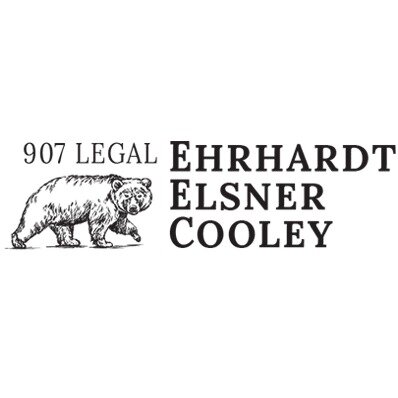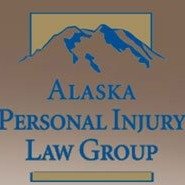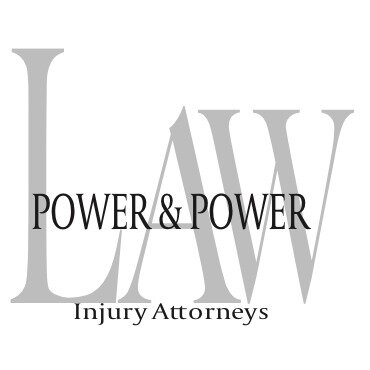Best Brain Injury Lawyers in Alaska
Share your needs with us, get contacted by law firms.
Free. Takes 2 min.
Or refine your search by selecting a city:
List of the best lawyers in Alaska, United States
About Brain Injury Law in Alaska, United States
Brain injuries are among the most serious and life-altering types of personal injuries. In Alaska, brain injury law covers a range of issues from traumatic brain injury (TBI) caused by accidents to injuries resulting from medical negligence or workplace incidents. Such cases often require understanding both the complex medical aspects of brain injuries and the legal procedures for claiming compensation. If you or a loved one has suffered a brain injury, knowing your legal rights in Alaska is crucial to ensure you receive the care and compensation you deserve.
Why You May Need a Lawyer
Navigating a brain injury case can be challenging due to the emotional and financial stress involved. Hiring a lawyer experienced in brain injury law is important for several reasons:
- Insurance companies may offer settlements that do not fully cover medical bills, long-term care, or lost wages.
- Proving liability in brain injury cases-whether from car accidents, slip and falls, sports injuries, or medical malpractice-can be complex.
- Brain injuries often require long-term or even lifelong care, including rehabilitation and therapy, which needs to be factored into any compensation claim.
- Legal professionals can help gather necessary evidence, medical records, and expert testimony to support your claim.
- A lawyer advocates for your best interests, making sure that legal deadlines are met and all pertinent local and state laws are correctly applied.
Local Laws Overview
Brain injury law in Alaska falls primarily under personal injury and, in some cases, workers’ compensation or medical malpractice law. Here are some key aspects:
- Statute of Limitations: In Alaska, you generally have two years from the date of injury to file a personal injury lawsuit, including brain injury cases. Exceptions may apply for minors or if the injury was not discovered right away.
- Comparative Fault: Alaska operates under a pure comparative fault system. If you are found partly responsible for your injury, your compensation will be reduced proportionally.
- Damages: Victims may be entitled to compensation for medical expenses, lost wages, pain and suffering, and future care needs. There are caps for non-economic damages in some cases, especially with medical malpractice claims.
- Insurance Requirements: Alaska law requires auto insurance coverage with minimum liability amounts, which can affect brain injury claims stemming from vehicle accidents.
- Workers’ Compensation: Employees who suffer a brain injury on the job are generally covered by Alaska’s workers’ compensation system, but claims can be disputed and require legal intervention.
Frequently Asked Questions
What should I do immediately after a brain injury in Alaska?
Seek medical care right away, report the incident to authorities or your employer if relevant, and contact an experienced brain injury lawyer as soon as possible to protect your legal rights.
How can I prove a brain injury was caused by someone else’s negligence?
Evidence such as accident reports, medical records, witness statements, and expert testimony can help establish liability. A lawyer can assist in gathering this crucial documentation.
How long do I have to file a lawsuit for a brain injury in Alaska?
Generally, you have two years from the date of the injury, but exceptions exist, so it is best to consult an attorney promptly.
What compensation can I receive for a brain injury?
Compensation may include medical bills, lost wages, future medical care, pain and suffering, and in some cases, loss of consortium or punitive damages.
Is there a cap on damages for brain injury lawsuits in Alaska?
There are some caps for non-economic damages in medical malpractice cases. Other personal injury claims do not have strict caps, but this can vary, so legal advice is important.
Can I file a claim if the injury happened at work?
Yes, you may file a claim through Alaska’s workers’ compensation system. If a third party was also at fault, you might have additional legal remedies.
What if the injured person is a minor?
Special legal provisions may extend the filing deadline, and settlements involving minors often require court approval to protect the child’s interests.
Do I need a lawyer for a brain injury claim?
While you are not legally required to have a lawyer, brain injury claims are complex and often involve significant compensation. A qualified lawyer increases the chance of a fair outcome.
How much does it cost to hire a brain injury lawyer in Alaska?
Most brain injury lawyers work on a contingency fee basis, meaning you only pay if you win or settle your case. Discuss specific terms during your initial consultation.
What should I bring to my initial consultation with a brain injury lawyer?
Bring medical records, accident reports, photographs, insurance documentation, and any correspondence related to the injury. This helps your lawyer evaluate your case effectively.
Additional Resources
If you or a loved one needs more information about brain injury or legal guidance, consider reaching out to the following organizations and agencies:
- Alaska Brain Injury Network (ABIN) - Provides support and resources for individuals with brain injuries and their families.
- State of Alaska, Division of Insurance - For information on insurance coverage and filing claims.
- Alaska Court System - Find forms, procedures, and information about court processes.
- Alaska Department of Labor and Workforce Development - For workers’ compensation claims.
- Brain Injury Association of America - Provides national resources and educational materials.
Next Steps
If you are dealing with a brain injury in Alaska and believe you need legal advice, follow these steps:
- Seek immediate medical attention to document and address your injuries.
- Preserve any evidence related to the injury such as photographs, reports, and witness contacts.
- Contact a reputable lawyer experienced in brain injury law for a consultation. Most offer free initial case evaluations.
- Discuss your situation thoroughly, ask about potential compensation, filing deadlines, and what to expect in the process.
- Follow your lawyer’s advice and keep detailed records of all medical treatments and communications.
Act quickly to protect your rights, as legal deadlines and time-sensitive evidence can impact your claim. A qualified lawyer can help you seek the compensation you need for recovery and future care.
Lawzana helps you find the best lawyers and law firms in Alaska through a curated and pre-screened list of qualified legal professionals. Our platform offers rankings and detailed profiles of attorneys and law firms, allowing you to compare based on practice areas, including Brain Injury, experience, and client feedback.
Each profile includes a description of the firm's areas of practice, client reviews, team members and partners, year of establishment, spoken languages, office locations, contact information, social media presence, and any published articles or resources. Most firms on our platform speak English and are experienced in both local and international legal matters.
Get a quote from top-rated law firms in Alaska, United States — quickly, securely, and without unnecessary hassle.
Disclaimer:
The information provided on this page is for general informational purposes only and does not constitute legal advice. While we strive to ensure the accuracy and relevance of the content, legal information may change over time, and interpretations of the law can vary. You should always consult with a qualified legal professional for advice specific to your situation.
We disclaim all liability for actions taken or not taken based on the content of this page. If you believe any information is incorrect or outdated, please contact us, and we will review and update it where appropriate.
Browse brain injury law firms by city in Alaska
Refine your search by selecting a city.
















